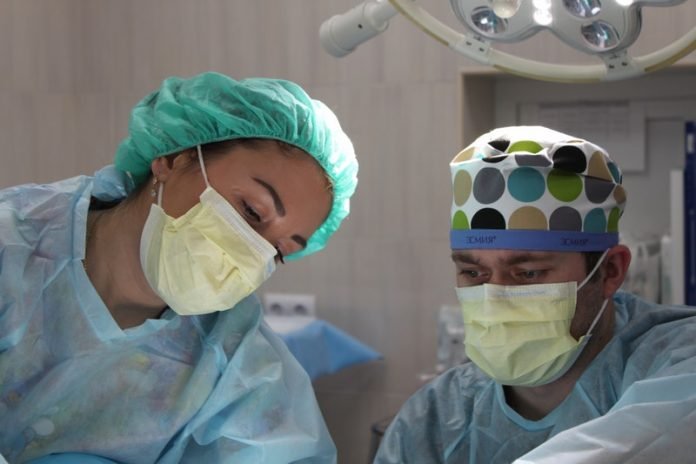
In a new study from the University of Arizona, researchers found that patients with stage II pancreatic cancer who are treated with chemotherapy followed by resection (an operation that removes the cancerous part of the organ, structure or tissue) live nearly twice as long as patients who receive only chemotherapy.
In stage II patients, there is a chance that pancreatic cancer can be removed by resection even after it has spread close to blood vessels.
Although chemotherapy can improve outcomes, the risk of surgery is justified because the patients live longer even if the cancerous tissue is not entirely removed.
In the study, the team found that patients who received chemotherapy followed by resection lived an average of 19.75 months, while those who received only chemotherapy lived an average of 10.12 months.
They examined data from the National Cancer Database (NCDB), a joint program of the American College of Surgeons and the American Cancer Society.
Pancreatic cancer is the fourth leading cause of cancer deaths in men and women in the U.S. Survival rates for pancreatic cancer are low because it is a fairly aggressive, fast-growing cancer.
Approximately 10% to 30% of these patients present with the disease in which resection may be considered appropriate therapy.
Chemotherapy can improve the chances for successful surgery, as about one in three borderline cases are resectable following chemotherapy. Even after surgery, however, it is common for pancreatic cancer to return.
While the goal of resection is to remove all of the tumor tissue, it can be difficult to accomplish, especially if cancer has spread to nearby blood vessels that feed the liver and small intestine.
Margin status, or how much cancerous tissue is left post-surgery on the edges of the resected area, is a significant predictor of survival after surgery for pancreatic cancer.
Patients with no cancerous tissue left after resection (R0) have improved survival compared with patients with microscopic amounts (R1) or macroscopic amounts (R2) of cancerous tissue left after resection.
This study looked at R1 and R2 resection outcomes compared with chemotherapy alone.
The results confirm current recommendations for stage II pancreatic cancer, which note that survival improves when patients receive multimodality therapy, chemotherapy before and/or after resection.
Further, patients benefit from surgery even in extremely difficult cases that end up with a margin positive resection.
The researchers found even when the tumor does not shrink significantly in response to chemotherapy, there are still survival benefits to taking an aggressive surgical approach.
If you care about pancreatic cancer, please read studies about this common health condition may increase pancreatic cancer risk and findings of the key to stopping the spread of pancreatic cancer.
For more information about pancreatic cancer treatment and prevention, please see recent studies about an 80-year-old mystery of pancreatic cancer and results showing that the cause of pancreatic cancer spread.
The study is published in the Journal of the American College of Surgeons. One author of the study is Amanda K. Arrington, MD, MHM, FACS.
Copyright © 2021 Knowridge Science Report. All rights reserved.



